Ban Ki-moon
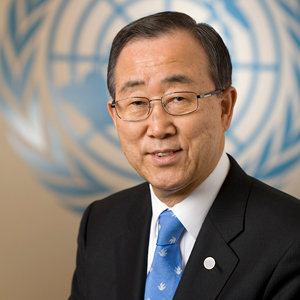
Former Secretary-General of the UN
In April 2019, Mr. Ban has been elected as the Chairman of Presidential National Council on Climate and Air Quality (NCCA). In April 2018, Mr. Ban has been elected as the Chairman of Boao Forum for Asia. Since January 2018, Mr. Ban, along with former President of Austria Mr. Heinz Fischer, has been inducted as Co-Chairs of the Ban Ki-moon Centre for Global Citizens in Vienna, Austria. Mr. Ban Ki-moon has also been elected as Chairman of IOC Ethics Committee in September 2017. Currently, he is the Distinguished Chair Professor and Honorary Chairman at the Institute of Global Engagement & Empowerment at Yonsei University in Seoul, Korea. Since February 2018, he has been elected as the President of the Assembly & Chair of the Council of Global Green Growth Institute (GGGI). Prior to such appointments, Mr. Ban has served two consecutive terms as the Secretary General of the United Nations (2007-2016). To download Mr Ban's full profile text, please click here.
Kim Sang-hee
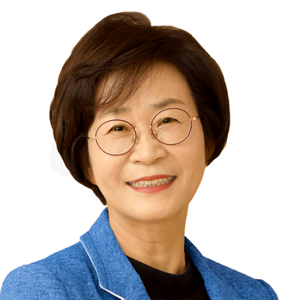
Deputy Speaker of the 21st National Assembly
Kim Sang-hee is Deputy Speaker of the 21st National Assembly of Republic of Korea. She is South Korean four-term parliamentarian. Kim is the first woman to join the leadership of the Assembly and become its deputy speaker. She is currently a member of Science, ICT, Broadcasting, and Communications Committee. Kim was also the Vice Chairperson of Presidential Commission on Aging Society and Population Policy from 2017 to 2019. Since then Kim took multiple senior roles in her party and its succeeding parties such as a member of its Supreme Council, Chair of its Women's Committee and its deputy floor leader. Kim was the chair of Gender Equality and Family Committee of the Assembly from 2012 to 2014. Kim holds a bachelor degree in pharmacy from Ewha Womans University.
Choi Ki-young
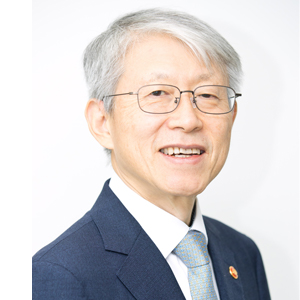
Minister of Science and ICT of Republic of Korea
Choi, Ki-young is Minister of Science and ICT of Republic of Korea since his appointment by President Moon Jae-in in September 2019. He was a professor of electrical engineering at Seoul National University (SNU), Republic of Korea. He took several roles in his faculty at SNU including the director of Neural Processing Research Center and Embedded Systems Research Center. Before joining SNU, he worked for Cadence Design Systems. He received his B.S. degree in electronic engineering from Seoul National University and M.S. degree in electrical and electronic engineering from KAIST. He worked for now-LG Electronics (then Goldstar) after graduation. He received Ph.D. degree in electrical engineering from Stanford University. He published over 200 papers in conference proceedings and journals. He served as a program/general chair for various premier international conferences. He is a fellow of the Institute of Electrical and Electronics Engineers (IEEE).
Byun Jae-il
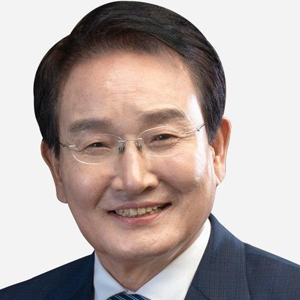
Member of the 21st National Assembly
Byun Jae-il is a member of the 21st National Assembly of Republic of Korea. He has been a member since 2004(from 17th National Assembly to 21st). Byun is currently a member of the Science, ICT, Broadcasting and Communications Committee of the National Assembly. He was a chairman of Committee on Education, Science and Technology of National Assembly from 2010 to 2012. Since he got first elected in 2004, he took many other leading roles in his party and of various committees of National Assembly. He holds a bachelor’s degree in Political Science and International Studies at Yonsei University and a master’s degree in Political Science(international Politics) at University of Pennsylvania.
Jo Myung-hee
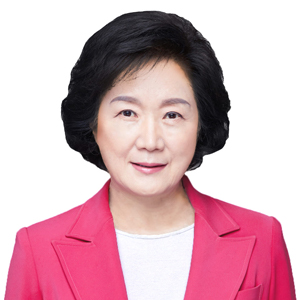
Member of the 21st National Assembly
Hon. Jo Myung-hee (United Future Party) is a member of the 21st National Assembly with the most expertise in science and technology. She is taking a leading role in promoting science and technology in Korea as a member of the Science, ICT, Broadcasting and Communications Committee of the National Assembly as well as the Chairperson of the Special Committee on Future Industries and Jobs of the United Future Party and the Co-President of the National Assembly Forum on ICT Convergence. As the first Korean to earn a Ph.D. in earth observation satellite, she taught at Kyungpook National University as a professor of convergence and fusion system engineering. She also sat on the Presidential Space Council and National Science and Technology Commission. In addition, she served as the President of Asia GIS Association as well as a board member and delegate of the Korea Association of Women’s Science and Technology Associations.
Patrick Child
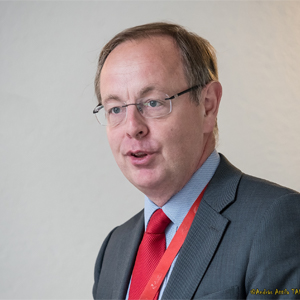
Deputy Director General in DG Research and Innovation at the European Commission and Acting Director for the Clean Planet
Patrick CHILD is Deputy Director General in DG Research and Innovation at the European Commission. He leads the policy for implementation, impact & sustainable investment strategies and is acting Director for the Clean Planet. This Directorate provides support to EU energy, transport, environmental, health, climate and industrial policies, promoting clean, reliable and secure energy production and use, safe and cleaner transport and urban systems as well as cleaner industry. As a member of the Board of DG Research and Innovation, he follows in particular research and innovation into climate action and clean energy and mobility technologies, and is the Commission representative of Mission Innovation (a coalition of 23 countries and the European Union, committed to doubling research in clean energy by 2020) and in the International Group of Earth Observations (GEO). Until April 2016, Patrick Child was Managing Director of the European External Service with responsibility for administration and finance, covering human resources policy, security and the budget. Before he took up this post in 2011, he was director in the External Relations Directorate General in the European Commission responsible for the management of the network of Commission delegations. He has previously served as head of cabinet for External Relations Commissioners Benita Ferrero-Waldner and before that Chris Patten from 1999-2004. With a background in the UK Finance Ministry, he joined the European Commission in 1994, where he started in the Economic and Monetary affairs Directorate General before becoming Commission press spokesman for economic and monetary union from 1995-1999. Mr Child studied mathematics at Cambridge University. He is married with two children.
Muneeza Mehmood Alam
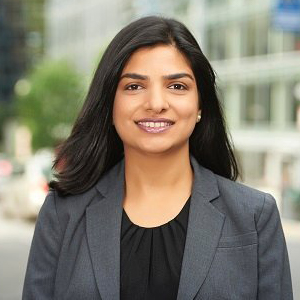
Economist in the Transport Global Practice of the World Bank
Muneeza Mehmood Alam is an Economist in the Transport Global Practice of the World Bank. During her time at the Bank she has worked on a myriad of topics relating to infrastructure and economic policy. These include economic corridors and regional connectivity, urban transport, logistics, gender, and electric mobility. Muneeza has a keen interest in understanding the mechanisms through which the economic and social benefits of transport investments can be maximized and more equitably distributed. Muneeza holds a PhD in Economics from Yale University and prior to joining the World Bank she has worked in economic consulting.
Ana Maria F. Almeida
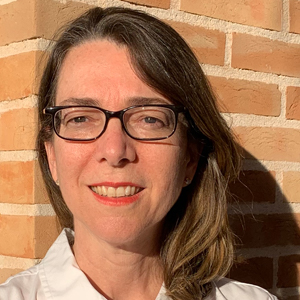
Co-lead of the Global Research Council Gender Working Group
Dr. Ana Maria F. Almeida is the co-lead of the Global Research Council Gender Working Group. She works at the Sao Paulo Research Foundation as Special Advisor to the Scientific Director in Social Sciences and Humanities and is Professor of Education and Inequality at the University of Campinas, Sao Paulo, Brazil.
Carlotta M. Arthur

Director of the Henry Luce Foundation’s Clare Boothe Luce (CBL) Program
Carlotta M. Arthur, Ph.D, is Director of the Henry Luce Foundation’s Clare Boothe Luce (CBL) Program, the most significant source of private support for women in STEM higher education in the United States. In addition, she provides strategic leadership in identifying initiatives with the potential to transform U.S. STEM higher education. Prior to joining Luce in 2012, Carlotta directed the Mellon Mays Undergraduate Fellowship and Diversity Initiatives Programs at the Andrew W. Mellon Foundation. Carlotta is an Engineer and a Psychologist, earning a B.S. in Metallurgical Engineering from Purdue University, a Ph.D. in Clinical Psychology (Psychophysiology) from the State University of New York at Stony Brook. She then completed a postdoctoral fellowship in Health Disparities at the Harvard School of Public Health. Carlotta served as an Assistant Professor at Meharry Medical College, and as an Adjunct Assistant Professor at the Dartmouth Geisel School of Medicine. A Licensed Psychologist, she is a trustee of the Helene Fuld College of Nursing in Harlem, New York; sits on a U.S. Council on Competitiveness, National Commission on Innovation and Competitiveness Frontiers Working Group; and is a member of the Society of Women Engineers Research Advisory Committee.
Rebecca Blum
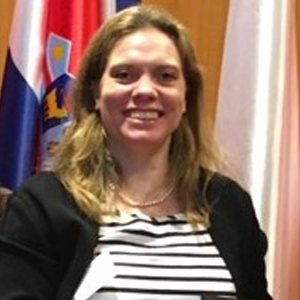
Senior analyst at Nordic Centre for Gender in Military Operations
Rebecca Blum is the senior analyst at Nordic Centre for Gender in Military Operations. She leads the analysis in current security and defence policy, and the global security environment, and its relation to the international Agenda on Women, Peace and Security and Gender Perspective in Military Operations. Rebecca leads the work with NCGM’s task as NATO Department Head for Gender in Military Operations and as such oversees developments in the discipline. She has a degree in Peace and Conflict Studies and anthropology. Rebecca has served with the UN and has been working in the field on Security Sector Reform primarily in sub-Saharan Africa. Rebecca has also worked for the European Parliament with security and political analysis. In addition, Rebecca holds a degree in mediation and conflict resolution.
Fredrik Bondestam
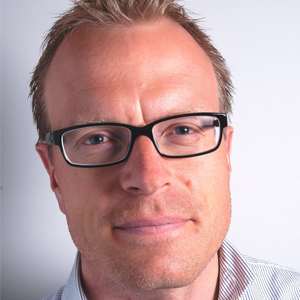
Director, The Swedish Secretariat for Gender Research, University of Gothenburg
Fredrik Bondestam is currently the Director of the Swedish Secretariat for Gender Research at the University of Gothenburg. He holds a PhD in Sociology (2004, Uppsala University) with a focus on gender equality and gender mainstreaming in academia. His research focus is on higher education in various respects, primarily organizational change, feminist pedagogy, sexual harassment, and gender mainstreaming in theory and practice. As research leader at the Center for Gender Research, Uppsala University, he developed new gender perspectives on the management, governance and organization of higher education within the framework of an excellence program financed by the Swedish Research Council. Since 2013, Fredrik has worked at the University of Gothenburg with several tasks, for example managing the government assignment on gender mainstreaming Swedish universities during 2016-2017. He has a long experience from various expert assignments within research and higher education policy, with a special focus on gender equality in higher education, and is involved in several EU projects on gender in research and education (Unisafe, Genderaction, GEECCO).
Laura Camfield
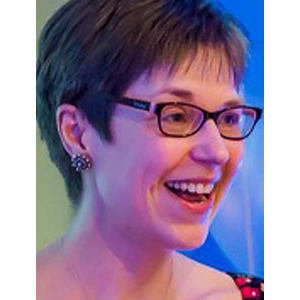
Professor in Development Research and Evaluation
Laura Camfield is Professor in Development Research and Evaluation. She trained as an anthropologist, but now works collaboratively using qualitative and quantitative methods, most recently with the DFID-funded Gender and Adolescence: Global Evidence longitudinal evaluation (2016-25). She works predominantly in East Africa and Bangladesh in relation to gendered experiences of poverty and changes in livelihoods over time. At UEA she convenes the main research training module for international development PhD students and teaches impact evaluation and research methodology. She has published widely on methodology, specifically in relation to mixing methods to improve the quality of surveys and measures.
Eun Ha Chang

Director, Center for International Development and Cooperation Korean Women's Development Institute(KWDI)
Eun Ha Chang is Director at the Center for International Development and Cooperation, KWDI and also adjunct professor at Kyunghee University. Prior to joining KWDI, she was a Research Fellow at the Center for International Studies at Yonsei University. She was also a lecturer at Yonsei and Korea University. Her research interests include gender and development, international humanitarian assistance, women, peace and security(WPS) agenda.Eun Ha holds a bachelor's degree in French Language and Literature from Yonsei University, a master's degree (MALD) from the Fletcher School of Law and Diplomacy, Tufts University, and a doctoral degree from the Graduate School of International Studies, Yonsei University. She was a Visiting Fellow at Harvard-Yenching Institute(2008-2010), and also worked as a communication specialist at McKinsey & Company(1997-1999). Eun Ha won Best Lecturer’s Awards from Korea University in 2012 and Kyunghee University in 2018 and 2019.
Dominique Charron
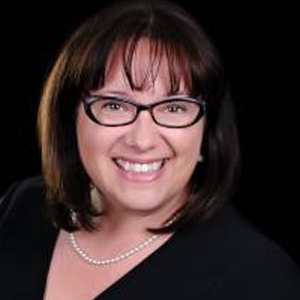
Vice-President, Programs and Partnerships International Development Research Centre (IDRC) Ottawa, ON, Canada
Dominique Charron is IDRC’s Vice-President, Programs and Partnerships. Prior to being Vice-President, Dominique was the Director of IDRC’s Agriculture and Environment program area. She supervised research focused on increasing agricultural productivity and food security, reducing vulnerability to climate change, and protecting the public against infectious diseases and non-communicable diseases. Dominique joined the Centre in 2006 as head of the Ecosystems and Human Health program. Previously, she managed research programs at the Public Health Agency of Canada. Dominique Charron holds a PhD in epidemiology and a Doctor of Veterinary Medicine from the University of Guelph.
Youngsuk 'YS' Chi
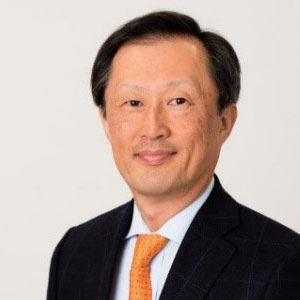 Chairman of Elsevier
Chairman of Elsevier
Youngsuk ‘YS’ Chi is an international businessman and a global thought leader in the publishing, education and information solutions industries. As Chairman of Elsevier, he works directly with key stakeholders in government, academia and industry to support over 30 million scientists, students and health information professionals. In his role as Director of Corporate Affairs for RELX, Elsevier’s parent company, he is responsible for government affairs, corporate communications and corporate responsibility across all four of the group’s market segments. Based in London and New York, Chi travels extensively to engage with scientific research communities, deliver thought leadership on key trends and advise stakeholders, boards and groups across industries. Chi serves as Distinguished Visiting Professor at Korea Advanced Institute of Science and Technology (KAIST). Chi is also an independent director of Ingram Industries Inc. (Nashville, USA) and is involved in numerous educational, artistic and charitable organizations including Princeton University, the Ban Ki-Moon Foundation and the Korea Society.
Oakla Cho
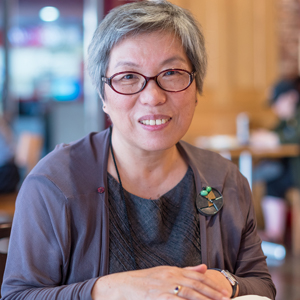
Professor Emeritus of Sociology and Board Member of Trustee for Sogang University
Prof. Oakla Cho is trained as an Anthropologist (Ph D in Anthropology from SUNY at Stony Brook, USA) working mostly in the field of rural and urban community studies and gender studies in Korea. She had worked in the department of sociology and found gender studies program in Sogang University. She had been the president of several academic associations, from Women Studies Association, Rural Sociological Association to the Association of Korean Cultural Anthropology. She had been also in the advisory committees for the government. She is retired from the university and presently works as an advisor to GISTeR
Gunhui Chung
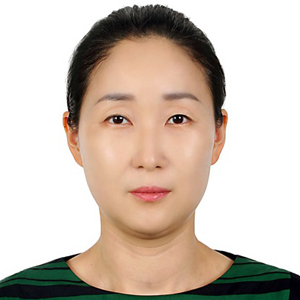
Associate Professor in the Department of Civil Engineering, Hoseo University, South Korea
Gunhui Chung (PhD in Civil Engineering from the University of Arizona, Tucson, AZ, USA) is an associate professor in Hoseo University (Cheongcheongnam-do, South Korea) working in the field of water-related disaster risk reduction and also a researcher in the Center for Gendered Innovations in Science and Technology Research(GISTeR). She has been working to evaluate disaster (flood/heavy snow) vulnerability index and impact of gender on the disaster management. Also, she has an interests in the climate change adaptation and response in disaster and safety management for the development of smart city including the optimal location of real time sensors to save water usage or decrease water shortage. Her current research projects are about ‘intelligent water supply system’, ‘snow load design under the climate change condition’, and ‘mitigation of urban flood using the structure of stormwater pipe network’. Optimization techniques and deep learning process to decrease water-related disaster is also one of the interested areas. She studied Environmental Engineering in Korea University (Sejong) for Bachelor of Engineering and received Master of Engineering in the department of Civil and Environmental Engineering (Water Resources), Korea University. Then, she studied water resources systems engineering in the department of Civil Engineering and Engineering Mechanics, the University of Arizona, Tucson, USA for Ph.D.
Jocalyn Clark
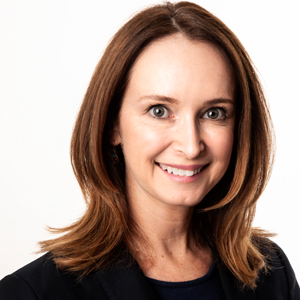
Executive Editor of The Lancet based in London UK
Dr Jocalyn Clark is an Executive Editor of The Lancet based in London UK. Previously Jocalyn was Executive Editor at the public health research organisation icddr,b and the Journal of Population, Health, and Nutrition in Dhaka, Bangladesh, Senior Editor at PLOS Medicine, and Assistant Editor at The BMJ (British Medical Journal). She serves as a scientific advisor to the INDEPTH Network of health surveillance systems, Global Health 5050, and WomenLift Health, and is an appointed member of the governance council of the CMAJ (Canadian Medical Association Journal). In 2014 she was named among the top 100 women leaders in global health and in 2018 she founded the first-ever Canadian Women in Global Health (#CWIGH) List. Jocalyn holds a BSc in biochemistry & microbiology, and a MSc and PhD in public health sciences (with gender studies), the latter for which she was a Canadian Institutes of Health Research fellow. Jocalyn is an adjunct professor of medicine at the University of Toronto and an elected fellow of the Royal College of Physicians of Edinburgh and of the Canadian Academy of Health Sciences.
Jonathan Dawes
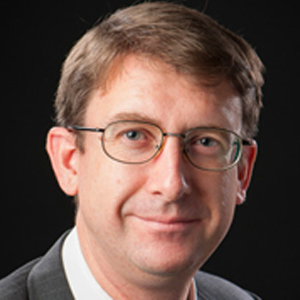
Professor, Deputy Director, Centre for Networks and Collective Behaviour, University of Bath, UK
Jonathan Dawes is Professor of Applied Mathematics at the University of Bath, UK. His research spans a wide range of mathematical modelling projects involving dynamical systems, fluid and solid mechanics, and network science. His academic projects involve many research partners, from British Telecom to UNICEF. From 2015 – 2020 he was Director of Bath’s Institute for Mathematical Innovation (IMI), which cultivates novel collaborations between mathematicians and natural and social scientists. He currently Chair’s the UK Engineering and Physical Sciences Research Council’s Strategic Advisory Team for the Mathematical Sciences, and is a member of the Advisory Board for the Royal Academy of Engineering’s Safer Complex Systems Programme.
Cheryl Doss
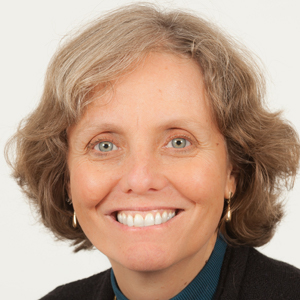
Associate Professor and Senior Departmental Lecturer in development economics in the Department of International Development at the University of Oxford
Professor Cheryl Doss is an Associate Professor and Senior Departmental Lecturer in development economics in the Department of International Development at the University of Oxford. She taught at Yale University for 17 years before coming to Oxford. She has published extensively on intrahousehold decision-making, technology adoption, gender issues in agricultural development, and the gender asset and wealth gaps. She is one of the leaders of the Gender Asset Gap Project, which was designed to demonstrate that it is both feasible and important to collect individual level asset data in household surveys. Since 2012, she has been the Gender Advisor for the CGIAR Program on Policies, Institutions, and Markets. She has worked with numerous international organizations on issues involving gender, rural development and data collection, including the World Bank, the International Food Policy Research Institute, UNDP, the Food and Agriculture Organization, the African Development Bank, among others.
Holly J. Falk-Krzesinski
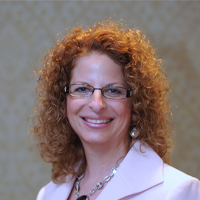
Vice President, Research Intelligence on the Global Strategic Networks team at Elsevier.
Holly J. Falk-Krzesinski, PhD, is the Vice President, Research Intelligence on the Global Strategic Networks team at Elsevier. Her key role is building and maintaining long term relationships with research institutions and funders, giving voice to research leaders at those organizations within Elsevier to help the business deliver the most impactful solutions to support research globally. Dr. Falk-Krzesinski focuses on how insights from data and analytics guide strategic planning for research institutions, funders, and science policy organizations and her engagement activities include building partnerships around gender diversity and equity issues. Actively involved in promoting women leaders in STEM, Dr. Falk-Krzesinski is co-chair of the Gender Working Group at Elsevier and co-author on Elsevier’s two global gender reports. She also previously served as the editor-in-chief of the AWIS Magazine. Prior to joining Elsevier, Holly was a faculty member and administrator at Northwestern University. Notably, there she launched the Chicago Collaboration for Women in STEM and the Navigating the Professoriate and Beyond Tenure programs in support of career advancement for women faculty members in STEM fields.
Rabia Ferroukhi
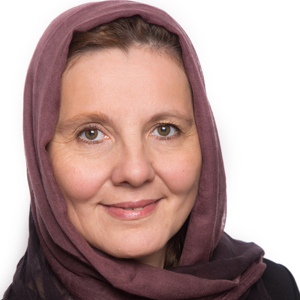
Director of Knowledge, Policy and Finance Centre
Dr. Rabia Ferroukhi joined IRENA in 2011. She is currently the Director of the Knowledge, Policy and Finance Centre where she oversees the Agency’s work on knowledge, policy and finance, including: efforts to produce up-to-date and authoritative renewable energy data and information; analysis to identify best practice in renewable energy policies and finance; and advice and support to countries, tailoring policy and investment analysis to renewables deployment in the field. Dr. Ferroukhi brought to this position over 20 years of experience in the fields of energy, development and environment. She worked in both public and private sectors, including with governments in the Middle-East and North Africa, energy companies in the Mediterranean region and the GCC, and international institutions. Dr. Ferroukhi holds a Masters in Applied Economics and a Ph.D. in Economics from the American University in Washington DC.
Jenny Graves
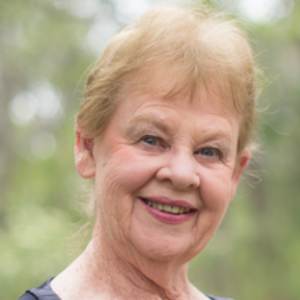
Evolutionary geneticist
Jenny Graves is an evolutionary geneticist who exploits our distant relationship to Australian animals to discover how genes and chromosomes and evolved, and how they work in all animals including humans. She uses this unique perspective to explore the origin, function and fate of human sex genes and chromosomes, (in)famously predicting the disappearance of the Y chromosome. Jenny studied at Adelaide University, then obtained a PhD in Molecular Biology at the University of California (Berkeley) in 1971. She lectured at La Trobe University, then at ANU she founded and directed the Comparative Genomics Group and an ARC Centre of Excellence. She returned to La Trobe in 2011 as Distinguished Professor and Vice Chancellor’s Fellow. Jenny has produced three books and more than 400 research articles. She has many honours and awards, including the Academy’s Macfarlane Burnet medal (2006) and an AO (2010). She is a Fellow of the Australian Academy of Science, and served on the Executive for 8 years as Foreign Secretary, then as Education Secretary. She is 2006 L’Oreal-UNESCO Laureate for Women in Science, an international Member of the US National Academy of Science, and won the 2017 Prime Minister’s Prize for Science (the first woman to win solo).
David Griggs
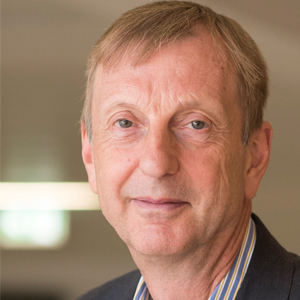
Adjunct Professor of Sustainable Development at Monash University in Australia and an Honorary Professor at Warwick University in the UK
David is an adjunct Professor of Sustainable Development at Monash University in Australia and an Honorary Professor at Warwick University in the UK. From 2016 to 2018 David established and was Director of the Warwick Institute for Global Sustainable Development. From 2007 to 2015 David was Director of the Monash Sustainability Institute (MSI) which aims to deliver solutions to key sustainability challenges. In November 2008 he established and became CEO of the newly created ClimateWorks Australia (CWA), an independent research-based non-profit organisation committed to catalysing greenhouse gas emissions reductions. Previous positions he held included UK Met Office Deputy Chief Scientist, Director of the Hadley Centre for Climate Change, and Head of the Intergovernmental Panel on Climate Change (IPCC) scientific assessment unit. He is a past vice-chair of the World Climate Research Programme. David was involved in the development of the UN Sustainable Development Goals (SDGs), representing the Science and Technology Major Group in the SDG negotiations at the UN and publishing two papers in Nature on the SDGs, one of which has received over 1500 citations.David was awarded the Vilho Vaisala award (World Meteorological Organization) in 1992 and a 2014 WME Leaders List Award which honours individuals who have provided extraordinary environment leadership.
Katrin Groth
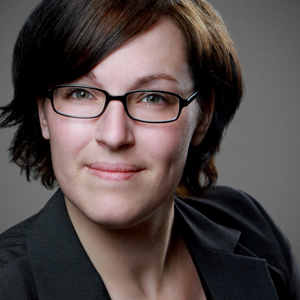
Scientist for the BMBF-funded project INGER (INtegrating Gender into Environmental health Research)
Katrin Groth joined the German Environment Agency as a scientist for the BMBF-funded project INGER (INtegrating Gender into Environmental health Research) in November 2017. She concentrates her research on human biomonitoring and gender and has theoretical and practical knowledge in data handling and data analysis. In the past she collected experiences in data processing and communication in the public health sector and worked in the longitudinal data field with the focus on inequalities and capabilities. She holds a Diploma in Economics and a Master of Science in Statistics.
Lydie Hakizimana
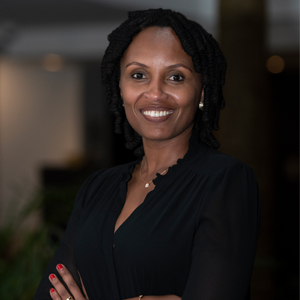
CEO of the African Institute for Mathematical Sciences (AIMS)
Lydie earned a Master’s in Public Administration (MPA) from the Harvard Kennedy School of Government, where she worked on a project to scale up Happy Hearts, her chain of preschools, by providing quality early education to hundreds of children between the ages of 18 months and five years old in Rwanda. Now CEO of the African Institute for Mathematical Sciences (AIMS), she is also the co-founder of Drakkar Ltd, a publishing house that serves more than 3,000 schools in Rwanda. In 2018, Lydie was appointed as a board member of the African Leadership University (ALU), which was named one of the most innovative companies in the world (#1 in Africa) by the influential magazine Fast Company. She previously worked for OTF Group, a Boston based consulting firm which advised the governments of Rwanda and Gabon in Information Communication Technologies, the Hides and Skin, and Timber industries respectively. A certified Montessori teacher from the North American Montessori Center (NAMC) in Canada, Lydie Hakizimana is a recipient of numerous awards, including the Mandela Washington Fellowship in 2016 and the Archbishop Desmond Tutu Fellowship in 2013.
Shirin Heidari
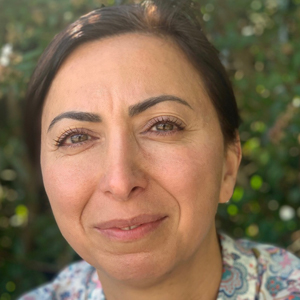
Founding president of GENDRO
Dr Shirin Heidari is founding president of GENDRO, an association with the mission to advance gender-sensitive research and data analysis. She is also Senior Technical Consultant on Gender and Health to World Health Organization (WHO). In parallel, Senior Researcher at Global Health Center and Research Affiliate at the Gender Center at the Graduate Institute of International and Development Studies, in Geneva. Before joining the Graduate Institute, Dr Heidari was the Executive Director of Reproductive Health Matters and Editor-in-Chief of its peer-reviewed journal, and prior to that she oversaw the Research Promotion Department of the International AIDS Society and was the editor of Journal of the International AIDS Society. She received her doctorate degree in clinical virology and experimental oncology from Karolinska Institute in 2001, where she continued as an HIV researcher until she moved to Geneva in 2007. She has been a board member of Amnesty International, Sweden and is the founding chair of the Gender Policy Committee of the European Association of Science Editors (EASE). She is the lead author of the Sex and Gender Equity in Research (SAGER) guidelines and has given a TEDx talk encouraging gender sensitive research and scholarly communication.
Sarah Huggett
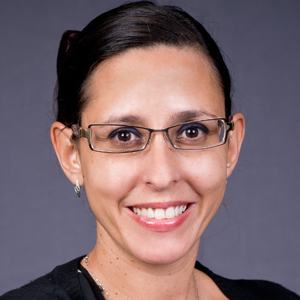
Head of Analytical Services APAC at Elsevier
Sarah Huggett is Head of Analytical Services APAC at Elsevier, based in Singapore. She leads a group providing consultative services to government agencies, funding bodies, policy makers, and research institutions planning for the future. Her team analyses research performance to offer insights and recommendations to research leaders. Sarah’s first job at Elsevier, in Research & Academic Relations in Oxford, UK, gave her expertise in using data to inform strategic planning. She has a particular interest in new developments in research evaluation, such as measures of attention and engagement. After completing a Bachelor’s then Master’s degrees at the University of Grenoble, France, Sarah moved to the UK to teach French at the University of Oxford, prior to joining Elsevier in 2006.
Takako Izumi
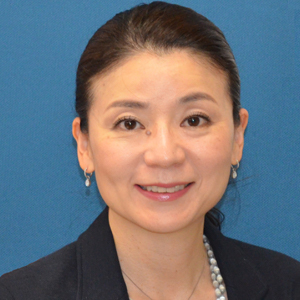
Associate professor at Tohoku University’s International Research Institute of Disaster Science (IRIDeS)
Takako Izumi is an associate professor at Tohoku University’s International Research Institute of Disaster Science (IRIDeS), working on global frameworks and strategies for disaster risk reduction (DRR). Her research focuses on international humanitarian assistance and DRR initiatives at the local and community levels. Izumi is concurrently serving as director of the Multi-hazards Program, started in 2013 by the Association of Pacific Rim Universities (APRU), a consortium of 55 leading research institutions. The Multi-hazards Program runs public workshops and a summer school for members aimed at addressing the threat of frequent natural disasters in the infamous Ring of Fire - the seismically active belt of volcanoes and tectonic plate boundaries that fringes the Pacific basin. Before joining Tohoku University, Izumi spent 15 years working with NGOs and various agencies within the United Nations, including UN Habitat, Office for the Coordination of Humanitarian Affairs (UNOCHA), Office of the Recovery Coordinator for Ache and Nias (UNORC) and Office for Disaster Risk Reduction (UNDRR). In May 2015, she was appointed to the UNISDR Asian Academia, Scientific and Research Advisory Group (ASTAAG) to support the efforts of governments and stakeholders in the implementation of the Sendai Framework for DRR. She holds Ph.D. in Global Environmental Study from Kyoto University, Japan.
Anders Karlsson
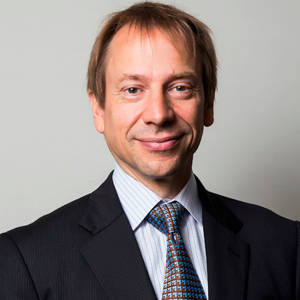
Vice President, Global Strategic Networks
Anders Karlsson, PhD, joined Elsevier in 2012 as Vice President, Global Strategic Networks, to support Elsevier’s relations with key stakeholders in Asia-Pacific region. Before Elsevier he was for five years Counselor for Science and Innovation at the Embassy of Sweden in Tokyo, Japan, the office also being responsible for South Korea. He is a member of Elsevier’s sustainability board and is the Japan chapter Vice-Chair of the International Association of Scientific, Technical and Medical Publishers (STM). He has been part of Elsevier’s analytical work on Stem Cell Science, Brain Science, Sustainability Science, Disaster Science, Artificial Intelligence, and Gender. Before serving as Science Counselor, he was for 10 years Professor in Quantum Photonics at the Royal Institute of Technology - KTH, Stockholm, Sweden. In year 2000 he was one of twenty researchers to receive the first Future Research Leader grant from the Swedish Foundation for Strategic Research. He also held a special research fellow position 2001-2007 with the Swedish Research Council. His work leading a consortium on quantum information technology, was awarded the EU René Descartes Research Prize in 2004. He has been Visiting Scientist at Nippon Telegraph and Communication - NTT Basic Research Labs, Stanford University as a Fulbright Visiting Scholar, École Polytechnique Paris, Zhejiang University and Senior Advisor at Osaka University. He has a Ph.D. in Electrical Engineering and a M.Sc. in Engineering Physics, both from the Royal Institute of Technology - KTH, Stockholm, Sweden.
Nayoung Kim
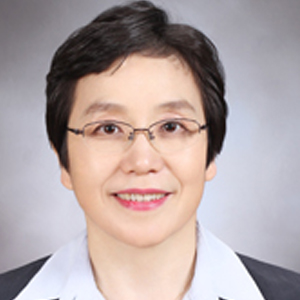
Professor, School of Medicine, Seoul National University, Rep. of Korea
Dr. Nayoung Kim is now working as a Prof. at Seoul National University College of Medicine, South Korea. She worked at Membrane Biology Laboratory, UCLA Medical School, USA as a Research Scholar (1999-2002). Her research focuses on the sex- and -gender specific medicine, functional dyspepsia, various aspects of Helicobacter pylori, gastroesophageal reflux disease, microbiota and age dependent change of GI organ with its function. She also actively participates in the Korean Academic Society activities and worked as a deputy editor of J Neurogastroenterol Motil from Jan. 2010 till April 2015 and a Congress Chairwoman of the Korean Society of Neurogastroenterology and Motility from April 2015 till April 2017 and Executive Board Member, Academic Affairs of Korean Medical Association. She was Vice President of Korea Federation of Women Science and Technology Association (KOFWST) from Jan. 2018 till Jan. 2020, and Vice Congresswoman of Korean Society of Gastroenterology) from Nov. 2018 till Nov. 2019. She has about 200 SCI publications in the various GI areas as a first author or corresponding author and the citation number was over 10,000 times. She received Marshall Warren Lectureship Award in 2018 at APDW 2018.
Eun Mee Kim
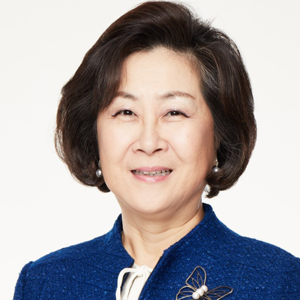
Professor, Graduate School of International Studies; Director, Ewha Global Health Institute for Girls & Women;Ewha Womans University
Eun Mee Kim (Ph.D.) is Professor in the Graduate School of International Studies and Director of the Ewha Global Health Institute for Girls at Ewha Womans University in Seoul, South Korea. Her research focus has been on economic and social development of developing countries, starting from her own country of South Korea since the 1960s from extreme poverty to now a donor of development cooperation. Her research has shifted to how South Korea as a relatively new donor has responded to developing countries with a unique blend of the ownership needs of the developing countries and South Korea’s own experience as a recipient of foreign aid during the post-colonial and post-war periods. Her research has now expanded to global public health with a particular focus on women and children, with girls as the most vulnerable yet with the greatest empowerment potential. This research has been supported by the Bill & Melinda Gates Foundation since 2013. She was appointed by the UN Secretary General as one of 15 scientists in the world to work on the Global Sustainable Development Report 2019, which was presented at the UN General Assembly in September 2019 with the title, The Future is Now: Science for Achieving Sustainable Development.
Hyung-Ju Kim
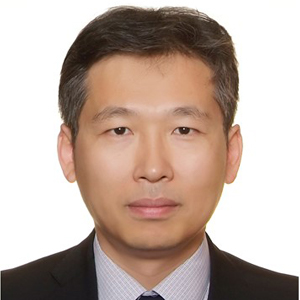
Director-General of the Green Technology Center (GTC), Korea
Dr. Hyung-Ju Kim is the Director-General of the Green Technology Center (GTC), Korea. GTC is one of twenty-five government research institutes under the Korean Ministry of Science and ICT (MSIT), the Korean focal point for the UNFCCC Technology Mechanism. Dr. Kim has been leading the Center’s core work on climate technology R&D policy research, global technology cooperation on the basis of developing countries’ needs and matching these to Korean expertise, as well as financial resources. In addition, he has been leading a number of global technology cooperation projects with developing countries, endorsed by UN and other international organizations. Dr. Kim holds a Doctoral degree in Mechanical and Production Engineering from the Technical University Berlin in Germany and worked as a research fellow at the Center for Sustainable Systems at the University of Michigan in the United States. He also worked as a Principal Consultant in Sustainability Consulting Team at Samsung SDS before joining the GTC. Dr. Kim has been serving in various advisory roles such as being a trainer, a reviewer and an expert panelist for international cooperation organizations.
So Young Kim
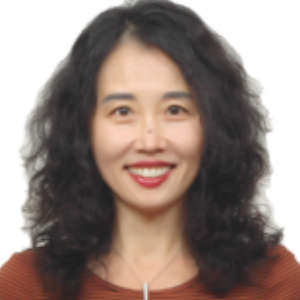
Director of the Korea Policy Center for the Fourth Industrial Revolution (KPC4IR) and the Project Coordinator of the Establishment of Kenya KAIST Project
Prof. So Young Kim is the Director of the Korea Policy Center for the Fourth Industrial Revolution (KPC4IR) and the Project Coordinator of the Establishment of Kenya KAIST Project. She received the B.A. and M.A. from Seoul National University and Ph.D. from Northwestern University with Fulbright Scholarship. As the former head of the KAIST Graduate School of Science, Technology, and Policy, Prof. Kim led or advised large-scale S&T policy programs on R&D funding, S&T workforce policy, science-based ODA, and the governance of emerging technologies. Prof. Kim is currently serving as the Chair of the Science and Diplomacy Committee of Korea Federation of S&T Associations, the Director of the Policy Institute of Korea Women’s Federation of S&T Associations, and the Co-Representative of the Citizen Coalition for Scientific Society, the largest citizen group for S&T promotion in South Korea. As a public intellectual, she has served numerous committees of government ministries including the Ministry of Economy and Finance, the Ministry of Science and ICT, the Ministry of Education, and the Ministry of Gender Equality and Family. She also served on the World Economic Forum’s Global Future Councils as well as on the Advisory Panel of the Institute for Public Understanding of Risk of the National University of Singapore.
Marco Lambertini
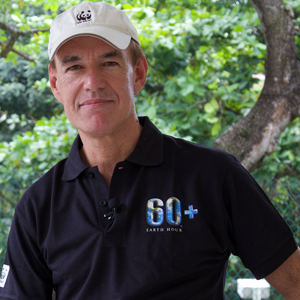
Director General, WWF International
Marco Lambertini is Director General of WWF International, having first worked with WWF as a youth volunteer in his native Italy. As the head of the largest and most respected nature conservation organization, he works with world leaders, corporate executives and civil society to forge a future in which people and nature thrive. He sits on the China Council for International Cooperation on Environment and Development (CCICED) chaired by the Ministry of Environment, is an international ambassador of the Food and Land Use Coalition (FOLU), a founding member of the Nature Action Agenda and Friends of Ocean Action of the World Economic Forum, Business for Nature Coalition and Global Commons Alliance. He leads a global Network with nearly 60 years of environmental conservation successes, five million supporters, 35 million followers on social media and activities in over 100 countries, running around 3,000 local projects per year as well as global initiatives like Earth Hour engaging millions and reaching billions of people annually. Prior to joining WWF, he served as Chief Executive of BirdLife International where he coordinated a global partnership of over 120 civil society organizations worldwide. Marco’s experience and career ranges from ecological field research to international policy, nature reserve management, integrated conservation and development projects, environmental education, NGO development communications and campaigning, in many countries all over the world.
Karina Kolbrún Larsen
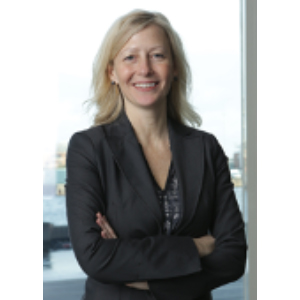
Knowledge, Communications &Gender Manager at the UNFCCC Climate Technology Centre &Network
Karina Kolbrún Larsen is the Knowledge, Communications & Gender Manager for the Climate Technology Centre & Network (CTCN), part of the Technology Mechanism of the UN Framework Convention on Climate Change. In her current role, Ms. Larsen has led the development and implementation of the CTCN’s gender policy and action plan, as well as the creation of the CTCN Knowledge Portal, the world’s largest online source of climate technology information. Karina has 20 plus years working experience on gender, knowledge sharing and communications in national and international organizations, as well as in Office of the Prime Minister of Iceland.
Heisook Lee

Principal Research Fellow, Center for Gendered Innovations in Science and Technology Research(GISTeR) and Professor Emeritus, Ewha Womans University, Seoul, Korea
Having served as the founding president of the Center for WISET (Women in Science, Engineering and Technology) until Mach 2016, Professor Heisook Lee moved to GISTeR to focus on Gendered Innovations research in STEM fields. Professor Lee was a co-organizer of the Gender Summit Asia Pacific in 2015. She received her B.S. M.Sc. and Ph.D. degrees in Mathematics from Ewha Womans University, Korea, the University of British Columbia and Queen’s University, Canada, in 1971, 1974 and 1978 respectively. She worked at Universitat Regensburg, Germany, as a postdoctoral fellow, and was later appointed Professor of Mathematics at Ewha Womans University in Seoul Korea. Professor Lee was Dean of the College of Natural Sciences, and Dean of Research affairs at Ewha between 1997 and 2001. She served as Dean of the Graduate School from 2006 to 2008. Professor Lee served as the founding Editor of Communications of the Korean Mathematical Society from 1986 to 1988 and as Chief Editor of the Journal of the Korean Mathematical Society from 1994 to 1996.
She also served as the founding director of the WISE Center in Korea between 2001 and 2010. HRD in STEM fields has been her main research interest. She also served as president of the Korea Federation of Women Scientists associations from 2006 to 2007. She was a member of Presidential Advisory Council on Science & Technology and National Science &Technology Commission.
Kye Young Lee
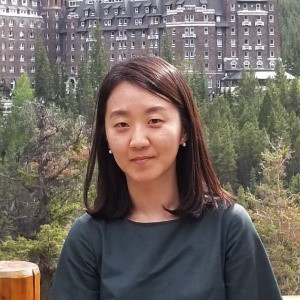
Researcher, Division of Policy Research, Green Technology Center (GTC), Korea
Kye Young Lee is a researcher in the Division of Policy Research of the Green Technology Center, currently pursuing research in the gender mainstreaming strategies of the UNFCCC and its constituted bodies and policy development processes in the Technology Mechanism. Prior to joining Green Technology Center, she was Energy Advisor at the Embassy of the Republic of Korea in Canada and a professional staff at the Consulate General of the Republic of Korea in Montreal and Permanent Mission to the International Civil Aviation Organization. She holds a BA from the University of British Columbia and MAs in International Relations from Waseda University and New York University.
Christine Lins
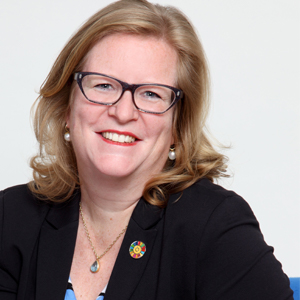
Executive Director of GWNET, the Global Women’s Network for the Energy Transition
Christine Lins works as Executive Director of GWNET, the Global Women’s Network for the Energy Transition, which aims at empowering women in the sustainable energy sector. Furthermore, she runs her own consultancy and is Member of the Board of Directors of ISES, the International Solar Energy Society. From July 2011 until March 2018, Christine Lins acted as Executive Secretary of REN21, the Renewable Energy Policy Network of the 21st Century, headquartered at UNEP, the United Nations Environment Programme in Paris/France.Between 2001 and 2011, Ms. Lins served as Secretary General of the European Renewable Energy Council. Previously, she worked in a regional energy agency in Austria promoting energy efficiency and renewable energy sources.Ms. Lins holds a Masters degree in international economics and applied languages. She has more than 23 years of working experience in the field of renewable energy sources and energy efficiency.
Professor Luterbacher
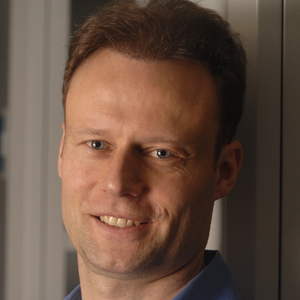
Director Science and Innovation Department, World Meteorological Organization, Geneva
Professor Luterbacher has been the Director of Science and Innovation since January 2020 and the WMO Chief Scientist since May 2020. He studied physical Geography, botany, chemistry and geology at the University of Bern, Switzerland. He was awarded a PhD in Climate Science from the Faculty of Science, University of Bern.Before joining the WMO, Prof. Luterbacher has been the Chair of Climatology, Climate Dynamics and Climate Change and member of the Centre for international Development and Environmental Research at the Justus-Liebig-University Giessen, Germany.Professor Luterbacher brings leadership skills for the development of efficient collaboration between operational communities and research, cross-cutting and interdisciplinary science, in fostering teamwork between institutions in developing and developed countries. He worked in paleoclimate science and studied present climate change and extremes. He has over 200 peer-reviewed publications. He has demonstrated effectiveness in cooperating with policy-makers and stakeholders. He was a lead author of the IPCC Assessment Report (AR5) chapter 5 “Information from Paleoclimate Archives”. Professor Luterbacher is a recipient of the Senior Visiting Scientist Award of the Chinese Academy of Science, the Scientific Research Expert of the Academy of Athens and he is an member of the Academy of Sciences&Literature / Mainz, Germany.
Jemilah Mahmood
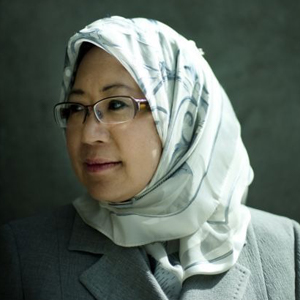
Special Advisor of the Prime Minister of Malaysia on Public Health
Tan Sri Dr. Jemilah Mahmood is the Special Advisor of the Prime Minister of Malaysia on Public Health since April 2020. She is a renowned humanitarian, well known for her role as founder of the medical NGO MERCY Malaysia in 1999. She recently returned to Malaysia having been the Under Secretary General for Partnerships at the International Federation of Red Cross and Red Crescent Societies (IFRC) since January 2016. Dr. Mahmood was the Chief of the World Humanitarian Summit secretariat at the United Nations in New York, and her previous appointments include Chief of the Humanitarian Response Branch at UNFPA; Senior Fellow at Khazanah Nasional Berhad in Malaysia’s Khazanah Research and Investment Strategy Division, and Senior Visiting Research Fellow at the Humanitarian Futures Programme at Kings College in London. From 2006-2009, she was one of 16 members appointed by United Nations Secretary-General to the Advisory Group of the Central Emergency Response Fund.
Jacqueline McGlade
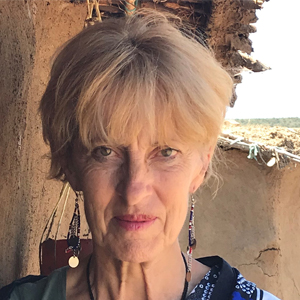
Professor at the Institute for Global Prosperity and Engineering at University College London, UK
Jacqueline McGlade is Professor at the Institute for Global Prosperity and Engineering at University College London, UK, Frank Jackson Gresham Professor of the Environment and at Strathmore University, Kenya,. Her current research includes data analytics, earth observation, ecosystem modelling, gender power relations and social capital, impacts of pollution and pharmaceuticals on health, development of traditional medicinal for improving diets in sub-Sharan Africa, decision making under high uncertainity, early warning systems and web intelligence. She is currnetly building a new Prosperity Index through co-laboratories. Previously she was UN Environment’s Chief Scientist, Director of Science and Chief Statistician, Executive Director of the European Environment Agency, Director of the UK Centre for Coastal and Marine Sciences, Professor of Biological Sciences at the University of Warwick, Director of Theoretical Ecology at the FZ Jülich and Senior Scientist in the Federal Government of Canada. She advises the European Bank for Reconstruction and Development, the UK, European and Kenya Space Agencies and the Open Government Platform for Kenya. She has published more than 200 research publications and books and produced award winning films and radio series.
Rosemary Morgan
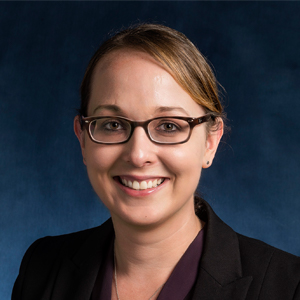
Assistant Scientist at Johns Hopkins Bloomberg School of Public Health in the Department of International Health
Rosemary Morgan, PhD, is an Assistant Scientist at Johns Hopkins Bloomberg School of Public Health in the Department of International Health. She has expertise in gender, gender analysis, and intersectionality. She is a co-PI on a project exploring the gendered effects of COVID-19 in Bangladesh, Kenya, Nigeria, DRC, and Brazil supported by the Gates Foundation, an advisor on a CIHR funded project exploring the gendered effects of COVID-19 in Canada, the UK, China, and Hong Kong, and co-coordinates a Gender and COVID-19 Working Group. In addition, Dr Morgan currently leads the Sex and Gender Analysis Core for the NIH funded Sex and Age Differences in Immunity to Influenza (SADII) project and works as a Gender Equality and Social Inclusion (GESI) advisor for the UK Partnerships for Health Systems programme (UKPHS).
Albert Motivans
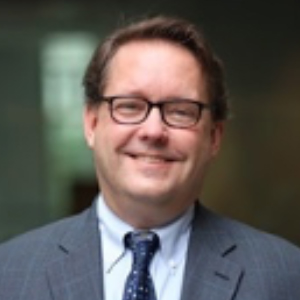
Head of Data and Research for Equal Measures 2030
Albert Motivans is the Head of Data and Research for Equal Measures 2030, a civil society and private sector-led data and advocacy initiative. He develops innovative approaches to generate, analyze and visualize new and existing sources of development data and to strengthen the technical capacity of national partners to use data to improve policies and development outcomes. He led the design of a comprehensive global tool to measure the status of girls and women - the SDG Gender Index - which was launched in June 2019. Prior to joining Equal Measures 2030, he led education statistics at the UNESCO Institute for Statistics where he oversaw the global education database and efforts to communicate, visualize and analyze data. He has worked in the fields of data and development for the UNICEF Office of Research and the U.S. Census Bureau and has published widely on the use of data to inform policies in child welfare, education, and gender equality. He is a member of various global technical panels, task forces, advisory groups and is an elected member of the International Statistical Institute.
Seblewongel Deneke Negussie
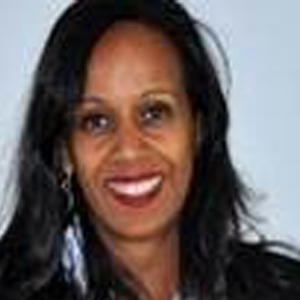
Gender and Social Specialist at the Green Climate Fund
Seblewongel Deneke Negussie is the Gender and Social Specialist at the Green Climate Fund with over two years at the Fund. She comes from Ethiopia and has 20 years plus working experience on gender issues with both national and international organizations. She has been working in the agriculture and food security, good governance, private sector and nutrition ensuring gender is mainstreamed. She has led and been involved in strategy and policy development, project /program design, implementation and supervision works. - grounded and experience working with communities, on agriculture, food security, forestry as well as in the preventions of harmful practices and violence against women issues.
Dorothy Nyambi
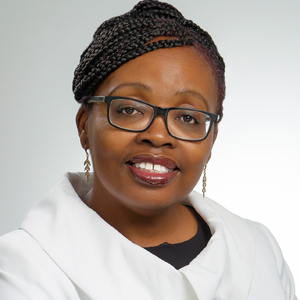
President and CEO of Mennonite Economic Development Associates (MEDA)
Dr. Dorothy Nyambi is the President and CEO of Mennonite Economic Development Associates (MEDA), a non-profit organization with a mission to create business solutions to poverty around the world. Dr. Nyambi holds a Doctor of Medicine Degree from the University of Yaoundé, Cameroon and has done extensive research on capacity building, advancing gender equality in developing countries, and innovation economies around the world. She is a current member of The Association of Women’s Rights in Development and the American Evaluation Association, among others. Beginning her career as a medical doctor, Dr. Nyambi later moved into the field of international development. Prior to joining MEDA, she was Executive Vice President of the African Institute for Mathematical Sciences (AIMS) and worked for organizations like the U.S. Peace Corps, World Health Organization and USAID. Dr. Nyambi is an advocate for blended finance initiatives in the international development sector and a champion of women’s rights around the world. Her experiences in the field have confirmed that entrepreneurship is a powerful way to alleviate poverty and empower sustainable communities.
Chaewoon Oh
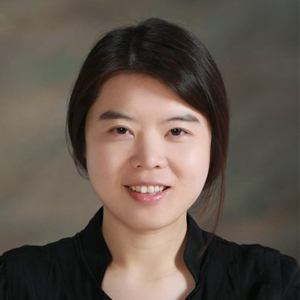
Principal Researcher at the Division of Policy Research of the Green Technology Center (GTC), Korea
Dr. Chaewoon Oh is a Principal Researcher at the Division of Policy Research of the Green Technology Center (GTC), a government-funded research institute under the Ministry of Science and ICT (MSIT) in Korea. At GTC, she has been leading numerous research projects on technology-related international institutions that govern global climate technology cooperation under the UNFCCC. She received a B.A. from Korea University, a B.E. from Korea National Open University, and a M.A. in international relations and a Ph.D. in international studies from Waseda University. Her research focuses on international relations and international institutions & organizations in the field of global environmental politics, particularly in the issue area of climate change and international technology transfer.
Myongsook Susan Oh
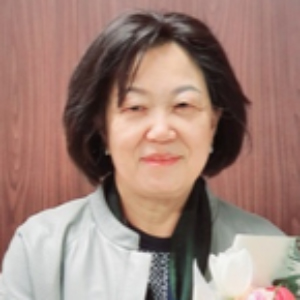
Department of Chemical Engineering, Hongik University, Korea
Myongsook Oh is a professor of Chemical Engineering Department at Hongik University in Seoul. She obtained a B.S. degree in chemical engineering from the University of California at Berkeley, and a Sc. D. from the Massachusetts Institute of Technology (MIT). Before joining Hongik University, Dr. Oh was associated with Lawrence Livermore National Laboratory (LLNL) and Texaco, Inc in the U.S. Starting from her Sc. D. thesis on softening coal pyrolysis, she worked on the conversion of fossil fuels for over 30 years, concentrating on the transformation of ashes. The other area that Dr. Oh devotes her efforts is to develop women in engineering programs and educational contents. She authored several articles on engineering education for female students as well as research papers. She is also very active in the professional societies. Currently, she is the chair of the Board of Women in Science, Engineering & Technology (WISET) Centre, president of the Korean Society for Engineering Education, a former president of Women in Science, Engineering, and Technology in Korea, and a former vice president of International Federation of Engineering Education Societies. She is a member of the National Academy of Engineering of Korea (NAEK).
Hee-Young Paik
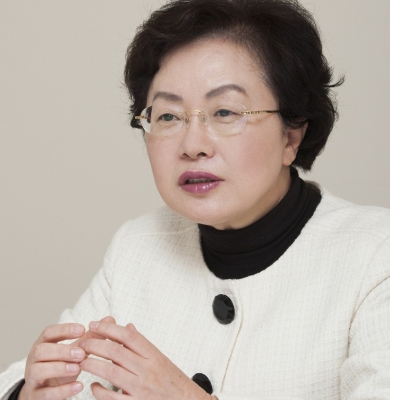
Director of the Center for Gendered Innovations in Science and Technology Research(GISTeR), Korea Federation of Women’s Science and Technology Associations(KOFWST) in Korea and Professor Emeritus of Seoul National University
Dr. Hee-Young Paik currently serves as the Director of the Center for Gendered Innovations in Science and Technology Research(GISTeR), Korea Federation of Women’s Science and Technology Associations(KOFWST) in Korea and Professor Emeritus of Seoul National University. Dr. Paik received Doctor of Science in Nutrition from Harvard School of Public Health in Boston, Massachusettes, USA. After receiving doctoral degree, she worked as a faculty member at Sookmyung Women’s University and then at Seoul National University in Korea until February 2016. She worked in various professional organizations serving various roles including Presidents of the Korean Home Economics Association in 2013, the Korean Nutrition Society in 2015, and the Korea Federation of Women’s Science and Technology Associations in 2014-2016. She was the Chair of the the Korean DRIs Committee during 2002-2005, when the Dietary Reference Intakes for Koreans were newly developed in Korea. She was a member of the IUNS Council in 2005-2009, and received several honors including Excellent Research Awards in Science (2005), National Honor for High Achievements in Science (2008), and Asia-Pacific Clinical Nutrition Award (2009) and Blue Ribbon National Medal for Public Service (2012). Dr. Paik served as the Minister of Gender Equality and Family, Republic of Korea, 2009-2011.
Elizabeth Pollitzer
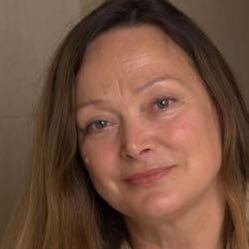 Director, Portia Ltd, UK; founder, Gender Summit
Director, Portia Ltd, UK; founder, Gender Summit
Elizabeth Pollitzer, (PhD (InfSc), BSc (Bio/Phys)) is the founder and director of Portia, which set up the Gender Summit in 2011 and has co-convened each summit since then. She is expert evaluator and adviser for the European Commission, and is involved in several EU projects. Elizabeth Pollitzer PhD is founder and Director of Portia, an organization devoted to improving gender equality in STEM and promoting the inclusion of the gender dimension in STEM. She has 20 years’ experience teaching and researching in the Departments of Computing and Management at Imperial College, University of London. Her original training was in Biophysics. She now applies this scientific background to her work as director of Portia. Portia was the coordinator of the genSET project, the Gender Summits were established as part of the genSET project.
Curt Rice
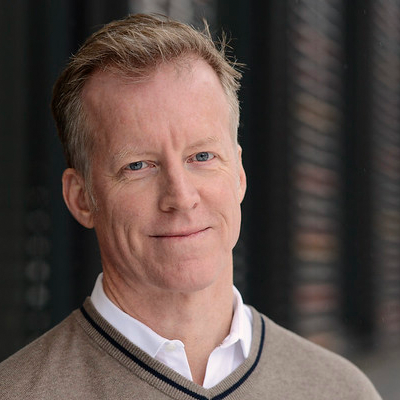
President of Oslo Metropolitan University
Professor Curt Rice is the President of Oslo Metropolitan University in Norway – an institution which has achieved complete gender balance at the professorial level. He also leads Norway’s Committee on Gender Balance and Diversity in Research. Rice has been active in issues related to gender equality in academia for many years, and has had a role in several EU projects, including genSET, genderSTE, EGERA, LIBRA, and more. Rice was part of the genSET Science Leaders Panel, which in 2010 examined evidence on how gender dimension is treated in research. The Panel’s conclusions led to the creation of the Gender Summit platform. He has also been involved in the development of gender equality projects at the Research Council of Norway, including the creation of their «Balance» program. Prior to assuming the presidency of OsloMet, Rice was the Vice President for Research at the University of Tromsø, where he also was the Founding Director of that institution’s first Center of Excellence, CASTL — the Center for Advanced Study in Theoretical Linguistics. He is a prominent writer and speaker on issues of the type to be addressed at the Gender Summit and in 2018 he addressed the Nobel Prize Committees as part of their efforts towards great success in identifying more women Nobel laureates.
Sun-Young Rieh
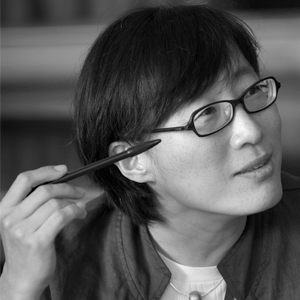
Professor in the Department of Architecture, University of Seoul, Korea
Sun-Young Rieh is a Professor in the Department of Architecture, University of Seoul, Korea. She is also a registered architect in both Korea and the USA. Rieh studied architecture in Seoul National University and earned an M. Arch degree from the University of California, Berkeley. She received Arch.D degree from the University of Hawaii. Her research expertise includes sustainable environment, gendered urbanism and educational environments. She is the author of “Creating a Sense of Place in School Environments (2020) and “Boom or Bust?: The Future of Buildings in Teheran-ro District after the Gangnam Building Boom in Seoul”(2019). She has co-authored various books including “Global Planning Innovations for Urban Sustainability” (2018) and “2030 Seoul Plan Gender Analysis” (2013). She led the research on ’Women -Friendly City Seoul’ and ‘Women- Friendly Special District Design, City of Sejong’. Her current research project includes ‘Community design empowering seniors for aging in place’.
She was the Fulbright visiting scholar at University of Hawaii (2007) and a visiting researcher at Delft University of Technology (2017). She served as a board member for AIK(Architectural Institute of Korea), KIA(Korean Institute of Architects). Currently she is a member of urban planning committee for Seoul Metropolitan Government.
Alice Ruhweza
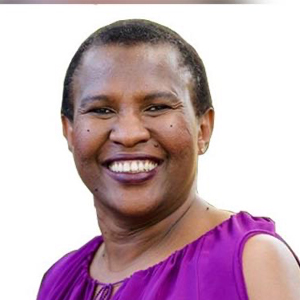
Africa Regional Director, WWF International
Alice Ruhweza joined WWF as Regional Director for Africa in July 2019. Her role is to develop and lead WWF in Africa so that it is highly influential; is able to shape the sustainability agenda of Africa domestically and globally to deliver WWF’s global conservation priorities; and play a leadership role to achieve the conservation impact within the WWF network. Prior to WWF, Alice worked for Conservation International (CI) first as Executive Director of the Vital Signs Programme, then as Interim Vice President of Sustainable Production, and finally as Vice President of Programs and Partnerships. Prior to joining CI, Alice spent 6 years with UNDP, where she was Team Leader of the UNDP’s Global Environment Finance Unit in Africa. Previously, Alice worked for the National Environment Management Authority in Uganda, Forest Trends (USA), Sprint Corporation (USA), as a consultant for the World Bank, UNEP Economics and Trade Branch, the UNFCCC Secretariat, the Foundation for International Environmental Law and Development, and the Institute for European Environmental Policy on a wide range of issues ranging from the Economics of Ecosystems and Biodiversity, Trade and the Environment, Environmental Governance, Innovative Finance and many more. Alice holds a Bachelors in Social Sciences from Makerere University (Uganda), and a Masters in Agricultural and Applied Economics from University of Wisconsin (USA). Alice is an Aspen New Voices Fellow, a Henry Arnhold Conservation Fellow and a Fellow of the Salzburg Global Seminar.
Cláudia S. Sarrico
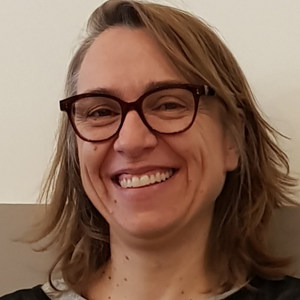
Project manager of the project on Reducing the Precarity of Research Careers of the Global Science Forum at the OECD
Cláudia S. Sarrico is currently the project manager of the project on Reducing the Precarity of Research Careers of the Global Science Forum at the OECD. She was a lead analyst of Resourcing Higher Education, the project manager of the School Resources Review, and the lead analyst of Benchmarking Higher Education System Performance. Previously, she was an associate professor at ISEG Lisbon School of Economics and Management, University of Lisbon, and a senior researcher at the Centre for Research on Higher Education Policies. In 2014/15, she was a visiting fellow of the Warwick Business School. She holds a degree in Industrial Engineering and Management from the University of Aveiro (Erasmus Scholarship at Université de Lyon III, France and Commett Scholarship at Universität Freiburg, Germany), and PhD in Industrial and Business Studies from Warwick Business School. She has served as an advisor to the Board of Portuguese Research Funding Council (FCT), an advisor in the Office of Studies and Analysis of the Agency for Assessment and Accreditation of Higher Education, and worked as an assistant professor at the University of Aveiro. She was also a consultant in the operational and statistical research group at Royal Mail Consulting and a scientist at the Supply Chain Management Unit of Unilever Research. She did her final degree project at FhG-ISE, Fraunhofer Institute for Solar Energy Systems, Freiburg, Germany.
Ylann Schemm
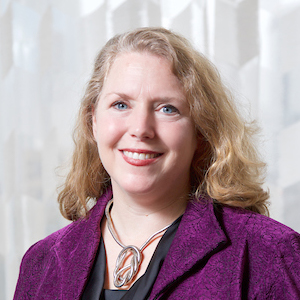
Director of the Elsevier Foundation and External Partnerships, Elsevier
As the Elsevier Foundation’s Director, Ylann Schemm drives technology-enabled partnerships to advance diversity in science, build research capacity and support global health around the world. She has been an integral part of the Foundation’s growth since joining as a Program Officer in 2008. In July 2020, Ylann was appointed the Chair for the Executive Council of Research4Life, a UN-publisher partnership to bridge access gaps for researchers, policymakers and healthcare practitioners in developing countries. In addition, Ylann currently serves as Elsevier’s Director of External Partnerships, building on 15 years in corporate relations and responsibility roles and focusing on key technology, gender and sustainability collaborations. Prior to joining Elsevier in 2005, Ylann held various roles in publishing and the non-profit sector, representing the European Platform for Dutch Education at the European Commission. She started her career as a writer and researcher for Time Life Books and holds an MA in Film & Television Studies from the University of Amsterdam and a BA, magna cum laude in English from Amherst College in Massachusetts. Ylann is both American and Dutch and based in Amsterdam.
Londa Schiebinger
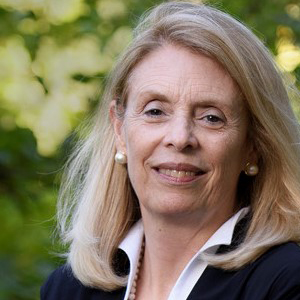
John L. Hinds Professor of History of Science at Stanford University, and Director of EU/US Gendered Innovations in Science, Health & Medicine, Engineering, and Environment
Londa Schiebinger is the John L. Hinds Professor of History of Science at Stanford University, and Director of EU/US Gendered Innovations in Science, Health & Medicine, Engineering, and Environment. She is a leading international expert on gender in science and technology and has addressed the United Nations on the topic of “Gender, Science, and Technology.” She is an elected member of the American Academy of Arts and Sciences and the recipient of numerous prizes and awards, including the prestigious Alexander von Humboldt Research Prize and Guggenheim Fellowship. Her global project, Gendered Innovations, harnesses the creative power of sex, gender, and intersectional analysis to enhance excellence and reproducibility in science and technology.
Martina Schraudner
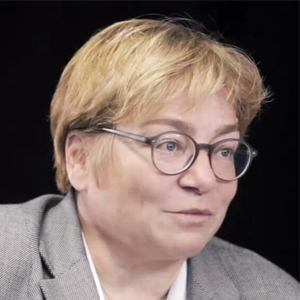
Head of Center for Responsible Research and Innovation of the Fraunhofer IAO and member of board of acatech- Deutsche Akademie der Technikwissenschaften e.V.
Prof. Dr. Martina Schraudner heads the Center for Responsible Research and Innovation of the Fraunhofer IAO and has been on the board of acatech- Deutsche Akademie der Technikwissenschaften e.V. since January 2018. After studying biology and biotechnology and obtaining her doctorate at the Technical University of Munich, she held various positions at the gsf München, the ETH Zurich and the Forschungszentrum Jülich (FZJ) since 1993. Starting in 2001, she was initially involved in the research planning of the Fraunhofer headquarter. Since 2008, she has developed and established the Center for Responsible Research in Innovation. Prof. Dr. Martina Schraudner heads the department "Gender and Diversity in Technology and Product Development" at the Technical University of Berlin. She is active in national and international selection committees for application-oriented research and innovation projects, among others for the expert group "Structural Change" of the EU and the Advisory Board for Gender and Inclusion of Elsevier. Furthermore she is a member of several University Councils (Paderborn, Landshut) and of the Board of the Competence Centre for Technik-Diversity-Chancengleichheit e.V.
Papa Alioune B. Seck
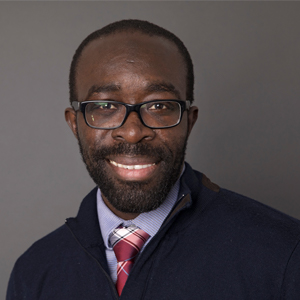
Chief Statistician, UN Women
Papa Alioune B. Seck leads statistics and data at UN-Women since 2009. Papa led the development of UN Women's Women Count global initiative, to improve the production and use of gender data and to help countries monitor the Sustainable Development Goals form a gender perspective and is currently leading its implementation since 2016. He also developed of the Evidence and Data for Gender Equality (EDGE) programme in 2012, in collaboration with the UN Statistics Division, resulting in innovative new standards and measures to measure asset ownership and entrepreneurship from a gender perspective. He has co-authored several editions of UN-Women’s Flagship Reports and contributed to various other research products. Prior to joining UN-Women, Papa worked was Statistics Specialist in UNDP’s Human Development Report (HDR) Office, co-authoring three global HDRs and was the co-editor of a book on Risk, shocks and Vulnerability and their impact on human development (Palgrave McMillan 2010).
Rajib Shaw
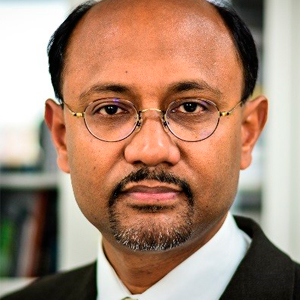
Professor in the Graduate School of Media and Governance in Keio University, Japan
Rajib Shaw is a professor in the Graduate School of Media and Governance in Keio University, Japan. He is also the Senior Fellow of Institute of Global Environmental Strategies (IGES) Japan, and the Chairperson of SEEDS Asia and CWS Japan, two Japanese NGOs. He is also co-founder of a Delhi (India) based social entrepreneur startup Resilience Innovation Knowledge Academy (RIKA). Earlier, he was the Executive Director of the Integrated Research on Disaster Risk (IRDR) and was a Professor in Kyoto University. His expertise includes disaster governance, community-based disaster risk management, climate change adaptation, urban risk management, and disaster and environmental education. Professor Shaw was the Chair of the United Nations Science Technology Advisory Group (STAG) for disaster risk reduction; and also the Co-chair of the Asia Science Technology Academic Advisory Group (ASTAAG). He is also the CLA (Coordinating Lead Author) for Asia chapter of IPCC’s 6th Assessment Report. He is the editor-in-chief of the Elsevier’s journal “Progress in Disaster Science”, and series editor of a Springer book series on disaster risk reduction. Prof. Shaw has published more than 45 books and over 300 academic papers and book chapters.
Dorothea Strüber
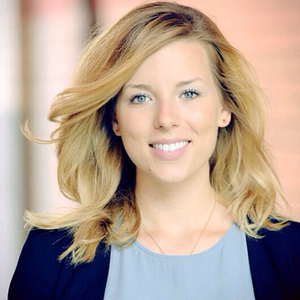
Manager within the National and Regional Networks Program of the SDSN
Dorothea Strüber is a Manager within the National and Regional Networks Program of the SDSN. She lends her support to the national SDSNs in Brazil, Cyprus, Germany, Greece, Mexico, and Turkey, as well as to the regional SDSNs in the Black Sea and the Mediterranean. In addition, Dorothea is the Community Manager for SDSN's online platform SDSN Mobilize. Dorothea joined the Networks Program at the beginning of 2016. Before that, she worked for ASYPS (Asociación para la Sostenibilidad y el Progreso de las Sociedades), one of SDSN’s member institutions, in Madrid, Spain. She holds a Master Degree in International Economics and Development from the Complutense University, Madrid, and the Université d’Auvergne, Clermont-Ferrand. Besides, Dorothea holds a Bachelor of Science in International Management from the University of Flensburg, Germany, and the Universidade Federal de Santa Catarina, Florianópolis, Brazil.
Changmo Sung
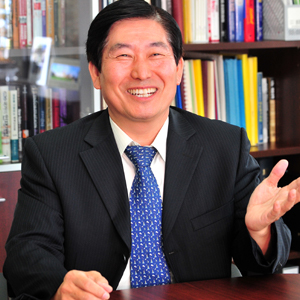
Endowed Chair Professor at Korea Institute of Research Development (KIRD)
Changmo Sung is currently an extraordinary Professor working on the strategic planning and policy innovation of global energy and environment at Green Graduate School, Korea University. He is a fellow of the Korea Academy of Science and Technology. He had been Expert Member at Technology Executive Committee, UNFCCC for 2 years and a president of Green Technology Center Korea for 4 years, an established government institution to coordinate and make green & climate technology policies. Dr. Sung was a president and CTO of Hyosung Corporation and was responsible for corporate R&D Institute for five years. He was a recipient of the National Honorary Medal of Science & Technology, Korea and had worked as President of the Inje University, Pusan in 2004 after 23 years residence in the United States. He was also serving as Presidential Committee on Policy Planning and National Special Committee of Innovation Science Technology in Korea. He had been a tenured professor at the Department of Chemical & Nuclear Engineering, University of Massachusetts, Lowell from the year 1992 to 2003 and involved in NSF Nano-manufacturing Center. He had published more than 100 technical papers in materials and nano-engineering fields.
Miyoko O. Watanabe
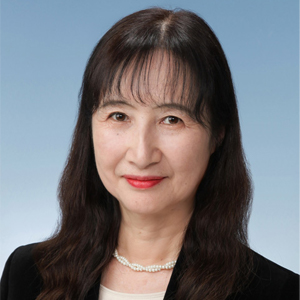
Executive Director and Director of Office for Diversity and Inclusiveness; Chair, Gender Summit 10 Asia-Pacific
Dr. Miyoko O. Watanabe serves at Japan Science and Technology Agency (JST) as Executive Director and Director of Office for Diversity and Inclusiveness. She has a long experience of research in semiconductor physics at Toshiba R&D Center in Japan, and she conducted her physics research as a Postdoctoral Fellow at Dalhousie University, Canada, from 1986 to 1988 and as a Visiting Researcher at Nanoscale Physics Research Laboratory at the University of Birmingham, U.K., in 1997. Returning to Toshiba, she served there at different positions, including that of Executive Quality Leader at Innovation Division in the headquarters.She has also been Council Member of Science Council of Japan (SCJ) since 2011, and Vice-president of SCJ in charge of science and society since October 2017. She worked as Chair of Committee on Comprehensive and Synthetic Engineering in SCJ from 2014 to 2017. Dr. Watanabe has been a member of Specialist Committee on Priority Policy in Council for Gender Equality of Cabinet Office of Japan since 2014. She was the chair of both Science Agora in 2015 and 2016 and Gender Summit 10 in Tokyo in 2017. She was also appointed STEM girls ambassador by Cabinet office in June, 2018, and has been active to promote STEM girls activity.
Shalva Weil
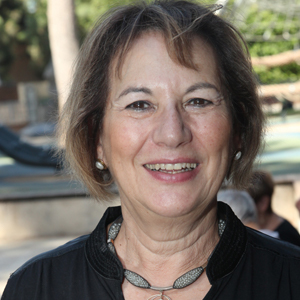
Senior Researcher at the School of Education at the Hebrew University of Jerusalem, Israel
Shalva Weil D.Phil is a graduate of the L.S.E. and Sussex University, UK. She is Senior Researcher at the School of Education at the Hebrew University of Jerusalem, Israel. In 2018 she was GIAN Distinguished Professor at JNU, New Delhi. She has published over 100 articles in scientific journals, edited books (Routledge, OUP, Marg, Magnes, Palgrave-Macmillan and more) and runs a women’s empowerment project for migrants from FSU in Israel’s slums. From 2013-2017, Prof. Weil served as Chair of the Cost Action IS1206 on Femicide Across Europe, heading a Management Committee from 30 countries. During 2015-6, she addressed the Parliaments of Portugal, Spain and Italy, and was invited to three UN meetings on femicide in Bangkok, New York and Vienna. In 2018, she co-edited the book Femicide across Europe (Bristol University Press, Policy). Her publications include Special Issue on femicide in Current Sociology, 2016; “Failed Femicides among Migrant Survivors” Qualitative Sociology Review (QSR), 2016; “Femicide of Girls in Contemporary India” Ex Aequo, 2016; Special Issue on Researching Femicide from a Qualitative Perspective in QSR, 2017; articles on femicide of elderly women, and orphans of femicide in Israel, in United Nations Studies Association, 2019; “Coronavirus and Femicide” in European Sociologist, 2020.
Michelle Winthrop
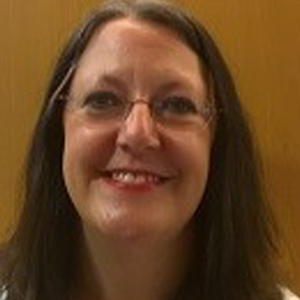
Policy Director, Development Cooperation and Africa Division, Department of Foreign Affairs and Trade, Ireland
Michelle Winthrop is Policy Director in the Development Cooperation and Africa Division in the Department of Foreign Affairs and Trade. She was previously the Climate and Resilience Policy Lead. Prior to joining the Irish Government, Michelle was Director of Programmes for Farm Africa, a British NGO working with on agriculture, forestry and market development in Africa. Michelle has worked for many years prior to that as a livelihoods and climate adviser within the UK’s Department for International Development, in the UK. This involved postings in East Africa (on secondment to the World Bank), Indonesia and Central America, as well as positions at HQ in the UK, including one working on gender and multilateral reform.
Insill Yi
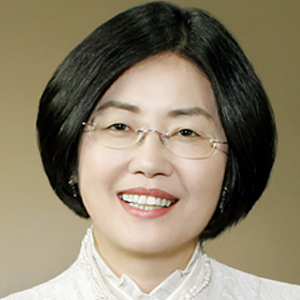
Professor of Graduate School of Economics
Insill Yi is currently a Professor of Graduate School of Economics(from September 2006)and was a Director of Nam Duck-Woo Economic Research Institute and former Vice-President for Public Affairs at Sogang University. She served for Korean government as the 12th Commissioner of Statistics Korea from the private sector also for the first time. She also served for National Assembly Budget Office as a Chief economist of Economic Analysis Division. She also worked as a senior research fellow and director of the Center for Finance and Tax, for Korea Economic Research Institute. She worked as a senior economist and team leader of financial analysis team, for Hana Bank Research Institute. She had been and is currently active in participating the governmental committees (such as Advisory Committee Member of National Assemble Budget Office, Member of Policy Advisor to Minister of Justice, and Advisory Committee Member of Financial Supervisory Service, Advisory Member of Ministry of Strategy and Finance). She is publishing books, articles and expressing various opinions in academic journals and newspapers. She served for the president and is currently honorary president of the Korean Women Economic Association and the President of the Association of Korean Economic Studies. She is currently the president-elected of the Korean Economic Association. She has a bachelor’s degree in economics and geology from Yonsei University and a doctoral degree from the University of Minnesota USA.














 Chairman of Elsevier
Chairman of Elsevier

































 Director, Portia Ltd, UK; founder, Gender Summit
Director, Portia Ltd, UK; founder, Gender Summit













